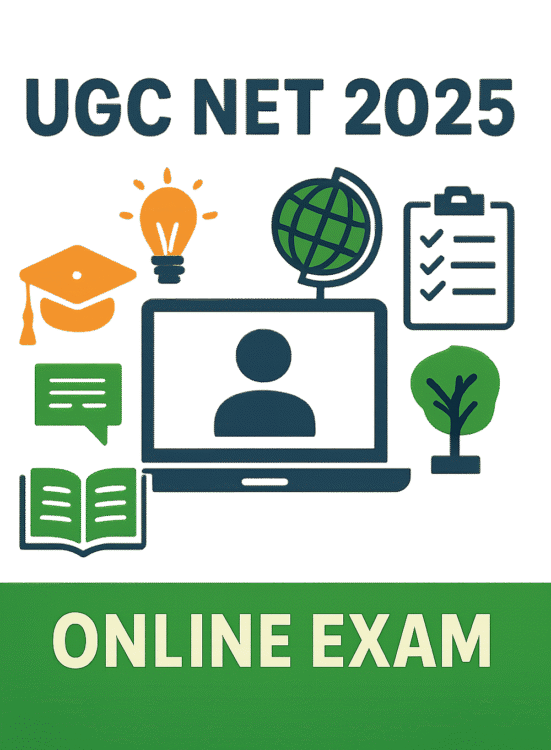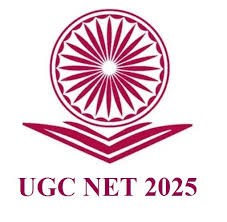
Introduction
The University Grants Commission National Eligibility Test (UGC NET) is a prestigious national-level examination in India, designed to determine the eligibility of candidates for the posts of Assistant Professor and to award Junior Research Fellowship (JRF) in Indian universities and colleges. Administered by the National Testing Agency (NTA), UGC NET is pivotal for aspiring academicians and researchers.
Exam Structure and Scheduling
- Frequency: Conducted twice a year, typically in June and December.
- Latest Cycle (2025): The June 2025 session was held from June 25 to June 29, with results announced on July 21, 2025.
- Mode: Entirely online (Computer Based Test, CBT).
- Subjects Covered: 85 subjects, ranging from Humanities, Social Sciences, and Commerce to Sciences and more.
Eligibility Criteria
- Educational Qualification: Master’s degree with at least 55% aggregate from a recognized university. Candidates with a 4‑year graduation degree with 75% aggregate are also eligible for JRF and Ph.D. admissions.
- Age Limit for JRF: Maximum age is 30 years. No upper age limit for Assistant Professor aspirants.
- Nationality: Indian nationals only.
- Additional Requirements: Candidates must fulfill subject- and category-specific criteria as per NTA/UGC regulations.
Exam Pattern
| Aspect | Paper 1 | Paper 2 |
|---|---|---|
| Type of Questions | MCQs | MCQs |
| Number of Questions | 50 | 100 |
| Marks | 100 | 200 |
| Duration | 3 hours (combined, no break) | |
| Syllabus | Common (General Aptitude) | Subject-specific |
| Negative Marking | None | None |
Both papers are attempted in a single three-hour session. All questions are compulsory.
Syllabus Overview
Paper 1: General Aptitude (Common for All)
- Research Aptitude
- Teaching Aptitude
- Comprehension
- Communication
- Mathematical Reasoning and Aptitude
- Logical Reasoning
- Data Interpretation
- Information and Communication Technology (ICT)
- People, Development, and Environment
- Higher Education System (including governance and administration)
Paper 2: Subject-Specific

- Consists of 100 MCQs from the candidate’s chosen subject. Subjects include Commerce, Management, Political Science, Computer Science, History, Education, Languages, and more.
Application and Exam Cycle
- Application Process: Conducted online via the official NTA UGC NET portal (ugcnet.nta.ac.in). The application window for the June 2025 session closed on May 12, 2025.
- Admit Card: Released in advance of the examination.
- Result and Scorecard: Published online. The scorecard includes eligibility status for JRF and/or Assistant Professor.
Preparation Strategy
- Understand the Syllabus: Review both Paper 1 and subject-specific Paper 2 syllabi in detail.
- Create a Study Plan: Allocate time for each topic, focus on weak areas, and follow a disciplined schedule.
- Use Standard Reference Books: Rely on trusted books and study materials recommended by experts and previous year toppers.
- Mock Tests and Previous Papers: Practice with at least 5 years of question papers. Attempt full-length mock tests for time management.
- Revision: Regularly revise all topics, especially high-weightage units in both papers.
- Time Management: Practice answering questions within the allotted time, aiming for 1.2 minutes per question.
- Active Learning: Use mind maps, self-quizzing, and teaching concepts out loud to reinforce retention.
- Exam-Day Preparedness: Ensure familiarity with the online (CBT) format, and remain updated on any changes via the NTA website.
Recent Updates & Important Notes
- The UGC has announced updates to the syllabus in alignment with the New Education Policy (NEP) 2020. Any revisions will be posted on the official website, with ample notice for aspirants.
- New subjects (e.g., Ayurveda Biology) were introduced from December 2024.
- UGC NET qualification is essential for many universities for admission to doctoral programs and academic positions, though some institutions may hold separate entrance exams.
Conclusion
The UGC NET is a gateway to a rewarding career in research and academia, offering opportunities for Junior Research Fellowship and Assistant Professorship. Comprehensive preparation, disciplined study, and strategic practice are key to success in this competitive examination. Candidates are encouraged to rely on official updates and proven resources to maximize their scores.

Leave a Reply